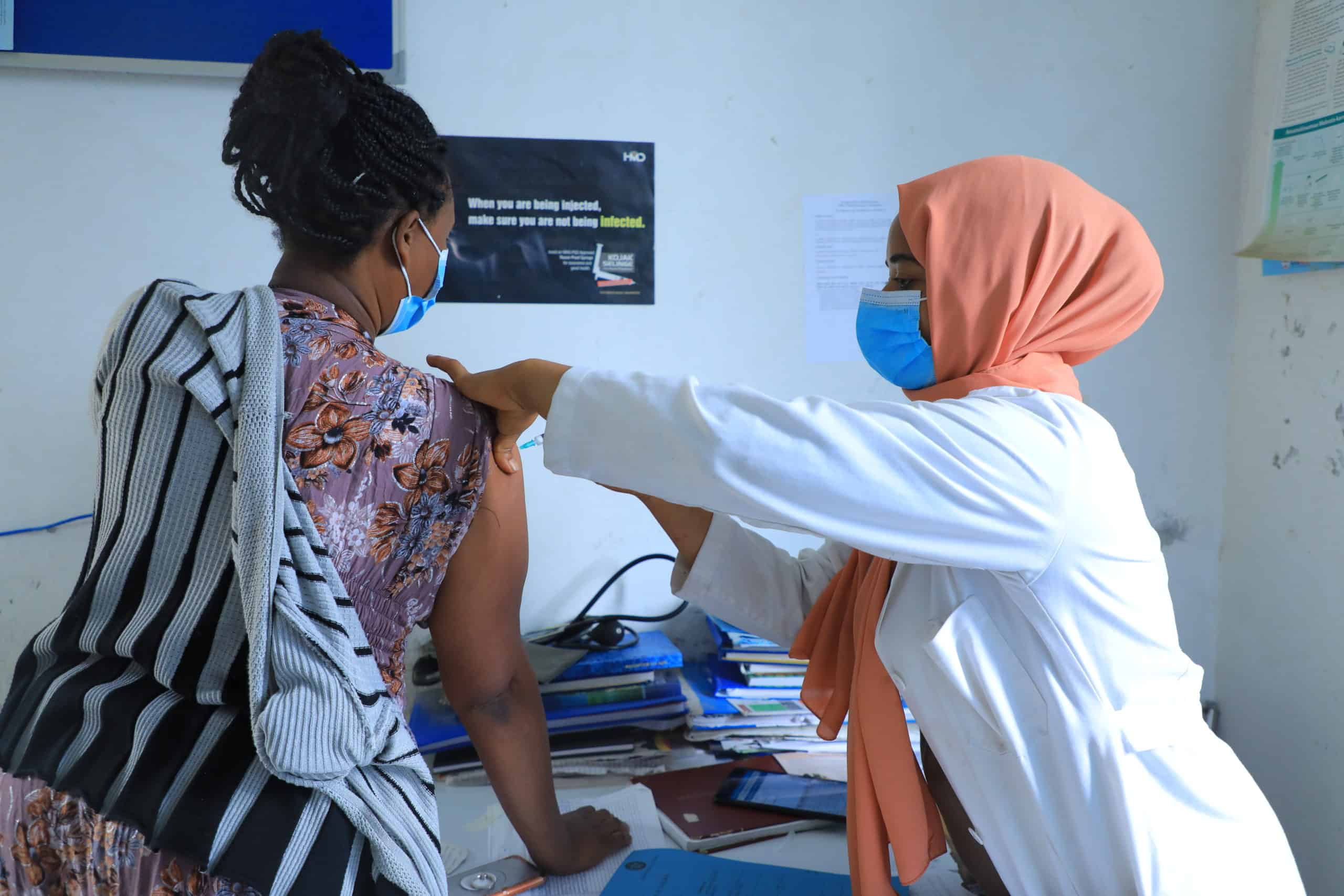Improving Reproductive, Maternal, Newborn, and Child Health Services through eCHIS in Ethiopia’s Oromia Region
May 23rd, 2022 | viewpoint
In 2018, few women in the Aleltu District of Ethiopia’s Oromia Region sought or received reproductive, maternal, newborn, and child health (RMNCH) services from their local health facilities. Giving birth under the care of a skilled birth attendant was rare in the district, located an hour-and-half’s drive northeast of the country’s capital, Addis Ababa.
Over the last few years, however, through efforts from the community, Ministry of Health (MOH), and partners like the Ethiopia Data Use Partnership (DUP), there has been a transformation across technology, processes, and behaviors. This was evident in 2020, when after the implementation of an electronic community health information system (eCHIS), all of Aleltu’s pregnant women accessed and received RMNCH services.
In 2019, the MOH, in collaboration with Oromia Regional Health Bureau (ORHB) and DUP, introduced eCHIS in the district. As a digital health tool that automates community health data to ensure the availability of and accessibility to quality and timely data for stakeholders, eCHIS allows health workers to enhance referral linkages between the health post and health center while upgrading the functions of health extension workers (HEWs). Implementation began with training for HEWs, midwives, and district health office focal persons on the tool’s basics. With 36 trained health workers and 20 tablets for the app, Aleltu kicked off the first round of eCHIS implementation across the district’s 20 health posts. A year later, through eCHIS, Aleltu had recorded health information of 37,668 of its 43,390 people in 9,109 of its 10,101 households.
Despite this, implementation came with challenges. One in particular was the inability to start RMNCH services using the tool due to skill gaps among health workers, limited mentorship, and inadequate supportive supervision. Remedying these issues required a mobilization of resources and coordination and collaboration among partners. As a response, the ORHB, MOH, and DUP initiated a tailored, multi-prong intervention that included supportive supervision with the intention of making Aleltu a demonstration site where its learning and experiences could be defused throughout the country and scaled up to other locations. As part of this round of intervention, implementing partners prioritized intervention support, including completing household and population registrations, starting RMNCH services, and creating referral linkages. They offered an eCHIS app refresher training to 56 health workers and leaders from the district’s health offices, centers, and posts. In addition, they filled workforce capacity gaps through a mentorship training.
Besides additional training, eight more eCHIS tablets were distributed to the Health Extension Program and maternal and child health focal persons to better cultivate referrals between the health facilities, monitor performance, and provide technical support. The provision of another 20 tablets ensured that each HEW in the district had one. In total, the district incorporated 48 eCHIS tablets within its health facilities, enabling Aleltu to digitize and share its community health data online. Furthermore, to facilitate synchronization of data with the central server, the intervention provided machine-to-machine SIM cards with airtime along with other critical equipment, such as solar chargers and revised family folders to all of the health posts and health centers.
In addition to equipping staff with knowledge and tools, the intervention also placed a large emphasis on strengthening performance monitoring teams (PMT) at the different levels of the health system, which provided a mechanism to review and analyze performance as a whole and develop action plans for course correction if needed. The PMTs also served as a platform to exchange information and feedback among health workers that bolstered effective eCHIS implementation in the district.

The cumulative effect of this intervention has enhanced staff capacity and commitment to implement the eCHIS in its entirety: since December 2020, Aleltu has registered all households and residents in the tool, and has provided RMNCH services to 19,435 individuals. Aleltu is not only one of a few districts in the country to fully digitize community profiles, but it has also started to use eCHIS in health service delivery, including RMNCH services. eCHIS also helped HEWs identify and monitor service needs, which led to increased antenatal care visits, postnatal care, child immunization, and family planning in the district.
Similarly, starting eCHIS referral linkages between health post and health center -where first and fourth ANC services and child deliveries happen – has also enhanced skilled birth attendant coverage with health workers having access to real-time and accurate information. “In the past we used to carry referral notes to the health center. But, now, we don’t. Health center already has our information,” says Abayenesh Fekede, a pregnant woman in the last trimester with her second child. Between July 2021 and February 2022, 31 women gave birth at health facilities in Sura, one of the districts kebeles. “Previously, this was an impossible task,” says Netsanet Bereded, an HEW at the Sura health post. Health workers now enter patient information online that ensures a fast and complete exchange of data, preventing poor service delivery from a lack of information.
Thanks to DUP’s collaborative efforts, Aleltu is fast ascending to full digitization of community health information. If appropriately packaged and replicated, Aleltu will guide Ethiopia as it realizes its goals for the next 10 years, including ensuring universal health coverage.
We strive to build lasting relationships to produce better health outcomes for all.